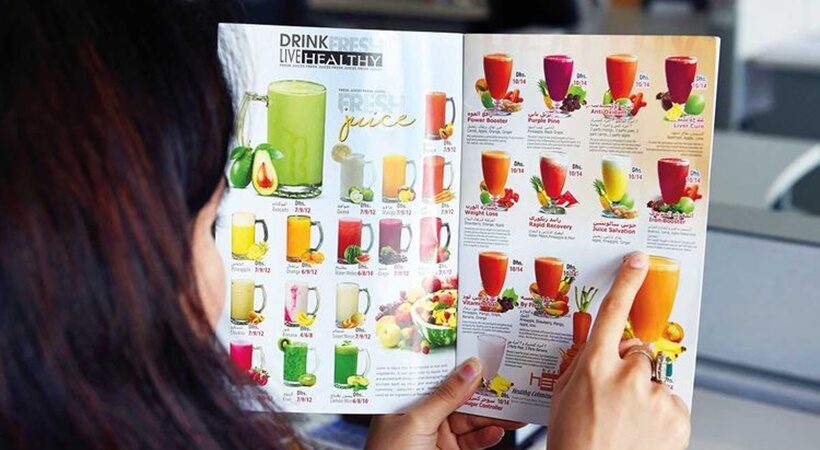The UAE is about to introduce mandatory measures for restaurants and other food outlets to display the calorie content of the food that is been served by them. The move is aimed at customers making healthy dietary choices, as stated by the authorities.
Dr Sultan bin Ahmed Al Jaber, Minister of Industry and Advanced Technology told the Federal National Council (FNC) that his ministry is currently working with the Ministry of Health and Prevention and other food regulatory authorities in the UAE to roll out a project to set guidelines specifying the number of calories and all ingredients in the meals served by restaurants and other food outlets in the country.
Although most of the task is carried out by the Ministry of Health and Prevention, the Ministry of Industry and Advanced Technology has developed standard specifications for the explanatory data of meals served in restaurants and food establishments, as a matter of national contribution and social responsibility.
The specifications included some factors such as calories and mentioning the names of materials and ingredients added in the food product. All data and basic information have to be featured on the labels.
According to authorities, the food outlets must give consumers information about nutrition and calorie as it is a direct and convenient way to help people make informed and healthy dietary choices.
Previously, in 2019, a nutrition labelling policy offering consumers more information about the foods they eat had been approved by the UAE Cabinet. The initiative was taken after the Community Design for Wellbeing Initiative was launched by the National Program for Happiness and Well-being in April 2019.
The policy seeks to improve public health and raise community awareness by encouraging people to adopt a healthy lifestyle in respect of their food choices.
The food labelling initiative was part of a series of new directives announced by the UAE Cabinet. Labelling policy on foods adopted a traffic light system that flagged healthy and less healthy foods based on the ingredients and nutritional contents.
Red, yellow and green labels indicated sugar, salt and fat content, but the system excluded products such as fruit, vegetables, meat and fish, fizzy and energy drinks.
“The initiative supported the National Food Security Strategy, which aims to sustain food safety, improve nutritional intake and reduce the consumption of unhealthy food by 30 per cent,” said Mariam Almheiri, Minister of State for Food Security. It was stated that achieving these objectives would reduce diet-related diseases and other health issues.
This policy will allow consumers to make better nutritional choices, and boost their confidence in the food industry, which will eventually enhance the national food security in the UAE.
The Nutrition Labelling Policy was based on the results of a field study carried out by the Community Design for Wellbeing Initiative. Participants said simple and clear systems for food labelling would help them make healthy choices.
Dubai Municipality had hoped to publish the calorie information policy in all restaurants, cafeterias and cafes with more than five branches.



















